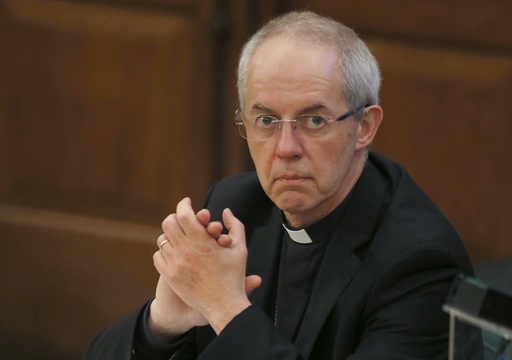
LONDON — Justin Welby, the Archbishop of Canterbury and head of the Church of England, announced his resignation on Tuesday, following revelations from a prolonged investigation into a sexual abuse scandal. This decision comes in the wake of an inquiry that concluded that he failed to notify law enforcement authorities about numerous instances of physical and sexual abuse committed by a volunteer at Christian summer camps as soon as he learned of the allegations.
To better understand the implications of this event, here are answers to key questions about the Church of England, Welby’s resignation, and its broader significance globally.
The Church of England, often referred to as the Anglican Church, is a major Christian denomination and holds the status of the official church within England. The church was established in the 16th century when it separated from the Roman Catholic Church. It is part of the worldwide Anglican Communion, which comprises over 85 million members across more than 165 countries. Notably, the monarch of the United Kingdom serves as the supreme governor of the Church of England, wielding the authority to appoint bishops and other church officials.
The Archbishop of Canterbury serves as the highest ecclesiastical authority in the Church of England and is viewed as the spiritual leader within the Anglican Communion. While each of the 46 churches in the Anglican Communion has its own head, the Archbishop of Canterbury is regarded as the foremost leader among equals.
Justin Welby, 68, was the 105th person to hold the position of Archbishop of Canterbury. Before entering religious life, he spent 11 years in the oil industry, leaving in 1989 to pursue his studies for the priesthood. Ordained in 1992, he garnered experience in Africa and the Middle East prior to becoming Archbishop in 2013. Although he was known for his mediating skills in resolving conflicts, particularly in Nigeria and other African nations, he struggled with unifying the global Anglican Communion amid diverse views on significant issues.
The Anglican Communion has experienced divisions similar to those seen in various Christian denominations, often stemming from differing beliefs on topics like homosexuality and the role of women within the church. While some churches in England and the United States have taken steps to become more inclusive of the LGBT community and have begun ordaining women into priesthood and bishop roles, conservative congregations in regions like Africa and Asia have largely opposed these changes. This discord has diluted the influence of the Archbishop of Canterbury in maintaining unity among the member churches.
Welby’s resignation comes after an independent investigation released a detailed report concerning the late John Smyth, a perpetrator who sexually and physically abused over 100 boys and young men in numerous settings, including Christian summer camps in the UK, Zimbabwe, and South Africa, over a span of fifty years. The report indicated that Welby, upon learning of the abuse in August 2013 shortly after assuming his role, failed to report Smyth to the authorities. It stated that had he acted sooner, many of Smyth’s victims could have been spared further abuse.
Initially, Welby resisted resigning, asserting he had been misled into believing that the police were already engaged in the matter and that his actions would not interfere with their investigation. However, mounting pressure from church leaders and survivors of abuse prompted him to reconsider, as many criticized him for lacking accountability in the ongoing scandal. Welby addressed the situation by stating, “It is very clear that I must take personal and institutional responsibility for the long and retraumatizing period between 2013 and 2024,” which led to his decision to step down.
The Church of England has faced numerous allegations of abuse, mirroring challenges seen within the Catholic Church. A government-led independent inquiry revealed that between the 1940s and 2018, 390 individuals affiliated with the church were convicted of child sexual abuse. Contributing factors included the cultural deference to priests, societal taboos surrounding discussions of sexuality, and an institutional culture that often prioritized the rights of alleged offenders over their courageous victims, turning the church into an environment that allowed abusers to operate with impunity. Supporters of Welby have noted his efforts to shift the church’s culture and enhance its safeguarding measures since his tenure began in 2013.
Looking ahead, the process of identifying Welby’s successor will commence with the Crown Nominations Commission. This body is responsible for recommending candidates for the positions of Archbishop of Canterbury and other bishopric roles across England. Once the commission identifies a preferred candidate along with an alternative, they will forward these nominations to Prime Minister Keir Starmer, who will in turn give counsel to King Charles III on the selection process. The commission is made up of 16 members, which include representatives from both the clergy and laity, a representative of the Anglican Communion, and a chairperson appointed by the prime minister.
